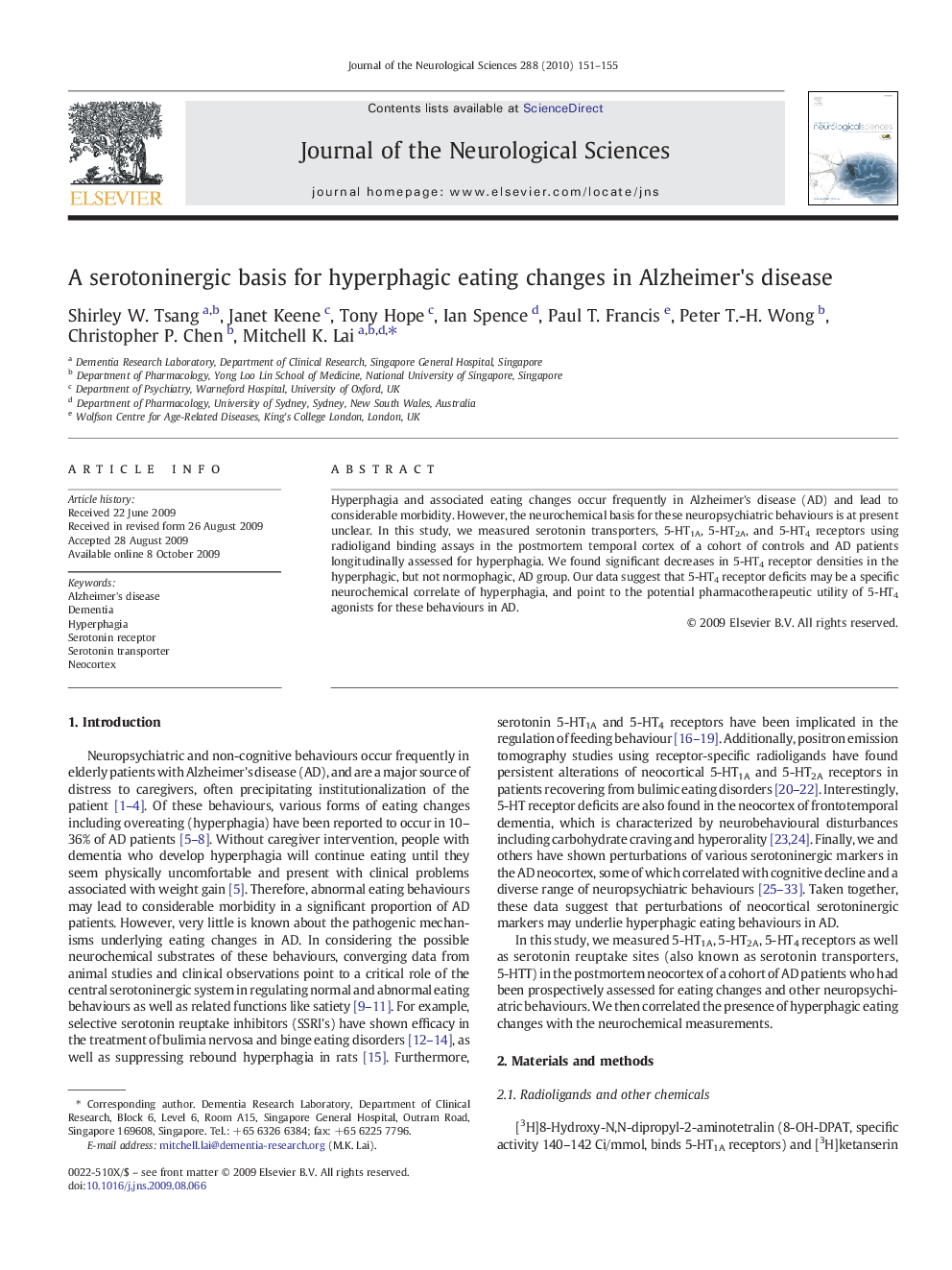| Article ID | Journal | Published Year | Pages | File Type |
|---|---|---|---|---|
| 1914772 | Journal of the Neurological Sciences | 2010 | 5 Pages |
Abstract
Hyperphagia and associated eating changes occur frequently in Alzheimer's disease (AD) and lead to considerable morbidity. However, the neurochemical basis for these neuropsychiatric behaviours is at present unclear. In this study, we measured serotonin transporters, 5-HT1A, 5-HT2A, and 5-HT4 receptors using radioligand binding assays in the postmortem temporal cortex of a cohort of controls and AD patients longitudinally assessed for hyperphagia. We found significant decreases in 5-HT4 receptor densities in the hyperphagic, but not normophagic, AD group. Our data suggest that 5-HT4 receptor deficits may be a specific neurochemical correlate of hyperphagia, and point to the potential pharmacotherapeutic utility of 5-HT4 agonists for these behaviours in AD.
Related Topics
Life Sciences
Biochemistry, Genetics and Molecular Biology
Ageing
Authors
Shirley W. Tsang, Janet Keene, Tony Hope, Ian Spence, Paul T. Francis, Peter T.-H. Wong, Christopher P. Chen, Mitchell K. Lai,
